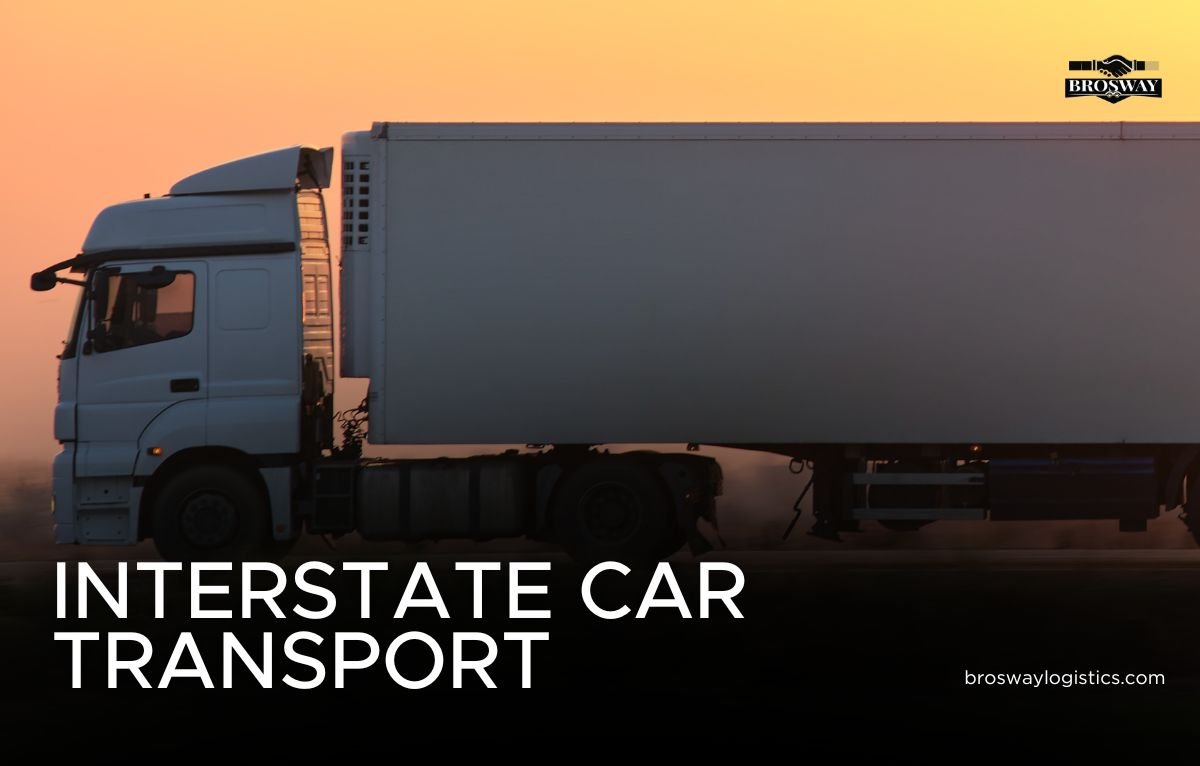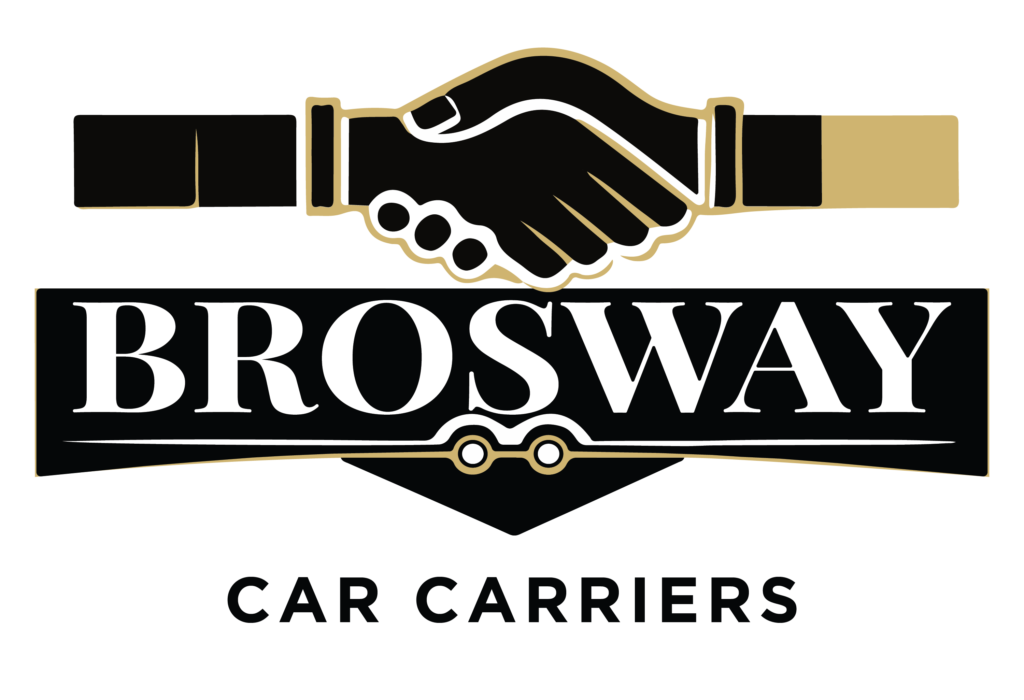Interstate Car Transport: How Does it Work?
Highlights
- Moving a car across states is easy with a clear process of booking, inspection, and delivery.
- Important documents like car registration, insurance, and inspection reports are needed for smooth shipping.
- Using a transport service saves time, money, and effort while keeping your car safe.

Buying a new car is always exciting—it’s a moment filled with possibilities and dreams of open roads. But transporting that car, especially across state lines, can be a lot of headache.
If you’re planning to DIY the whole process, our advice is simple: leave it to the professionals. Why take on all the labor, legal aspects, and long drives when a trusted company can handle it for you?
We’re here to guide you through the process, showing you what to expect and how to prepare for a smooth interstate car transport experience. But first, let’s talk about what interstate car transport is and how it works.
How Does Interstate Vehicle Transport Work?
Shipping your car across state lines involves a well-organized process that ensures safety, reliability, and efficiency. By understanding the steps, you’ll feel more confident about entrusting your vehicle to a transport company.
Let’s break down each phase of the journey to help you know what to expect.
Step 1: Request a Quote
The first step is to contact a transport company and provide details such as the make and model of your vehicle, its current location, and its destination. This allows the company to calculate an accurate estimate. Most companies offer free quotes online, making this process quick and straightforward.
Learn the difference between brokers and carriers and the effect each will have on your shipping experience.
Step 2: Select Your Transport Option
Decide between open transport, which is cost-effective and suitable for most vehicles, or enclosed transport, ideal for luxury or classic cars needing extra protection.
If time is a concern, expedited transport offers faster delivery but at a higher cost. The choice depends on your budget and the type of vehicle being shipped.
Step 3: Book Your Shipment
Once you’ve chosen a company and method, it’s time to finalize the details. Confirm pickup and delivery dates, and sign a transport agreement outlining terms and conditions.
Booking early can help you secure better rates and availability.
Step 4: Vehicle Inspection at Pickup
The driver will inspect your car upon pickup to document its condition in a report. This is an important step, as it protects both you and the company in case of any disputes about damages during transit. Be sure to review and sign this report.
Step 5: Transportation Process
Your car will be loaded onto a carrier and transported to its destination. Many companies now offer GPS tracking, allowing you to monitor your vehicle’s journey in real time. This transparency gives you peace of mind during the shipping process.
Step 6: Delivery and Final Inspection
Upon delivery, the transport company will conduct another inspection to ensure the car is in the same condition as it was at pickup. Carefully review the report before signing off, as this final step completes the process.
What Documents Do I Need to Prepare?
Documentation is a vital part of interstate vehicle transport. Having the right papers ready ensures a smooth process and avoids unnecessary delays. Let’s take a closer look at the essential documents you’ll need to prepare.
Vehicle Registration
This proves ownership of the car and is required for shipping. If the vehicle isn’t registered in your name, you may need additional documentation, such as a notarized letter of authorization, to proceed with transport.
Valid Driver’s License or ID
A government-issued ID is needed to verify your identity. This helps ensure that the person arranging the transport has legal authority to do so.
Proof of Insurance
Some companies require proof of insurance as an added layer of protection. Even though most transport providers carry their liability insurance, your policy might cover damages or losses during transit.
Shipping Contract
This document outlines the terms and conditions of the service, including costs, timelines, and liability coverage. Reading and understanding this contract is essential to avoid any misunderstandings.
Vehicle Inspection Report
Before the car is loaded, the transport company will document its current condition, noting any existing scratches, dents, or mechanical issues. This report will serve as a reference during delivery to ensure no damages occurred in transit.
Permits or Certificates
If your vehicle is oversized or modified, you may need special permits. Additionally, some states require emissions or safety inspection certificates before a vehicle can be transported.
7 Factors to Consider When Choosing a Transport Service
Choosing the right transport company is essential to ensure your car arrives safely and on time. With so many options available, it’s important to know what to look for. Here are the key factors you should evaluate before making a decision.
1. Licensing and Insurance
Always ensure the company is registered with the Department of Transportation (DOT) and has active insurance coverage. Licensing ensures the company operates legally, while insurance protects your car in case of damage or theft during transit.
2. Transparent Pricing
Look for a company that provides clear, upfront costs. Avoid services with hidden fees or ambiguous pricing structures. Transparent pricing helps you budget accurately and avoid surprises when it’s time to pay.
3. Customer Reviews and Testimonials
Reading reviews from past customers provides insights into the company’s reliability and service quality. Look for testimonials on trusted platforms like the Better Business Bureau (BBB) or Google Reviews to make an informed decision.
4. Tracking Options and Customer Service
Many modern transport companies offer real-time GPS tracking. This feature allows you to monitor your car’s journey and provides added peace of mind.
Responsive and helpful customer service is a hallmark of a reliable company. Make sure the provider is easy to contact and willing to address your concerns throughout the shipping process.
5. Distance and Costs of Interstate Vehicle Transport
Understanding the costs of vehicle transport can help you budget effectively and avoid overspending. Various factors influence the price, so it’s important to know what to expect. Let’s break down the main components that determine transport costs.
The longer the route, the higher the cost, as it involves more fuel and time. For example, shipping a car from California to Texas may cost around $1,000, while cross-country routes can exceed $1,500. Shorter distances are generally more affordable.
6. Vehicle Type and Transport Method
Larger or heavier vehicles, such as trucks or SUVs, are typically more expensive to transport than standard sedans. This is because they occupy additional space and add more weight to the carrier, which can increase the overall cost of the service.
Among the transport options, open transport is the most cost-effective and widely used, making it suitable for most standard vehicles.
For those seeking extra protection, enclosed transport is available and provides a shield from weather and road debris, though it costs 30 to 50% more than open transport.
If time is a priority, expedited transport offers faster pickup and delivery, but this convenience comes at a premium price.
7. Seasonality and Route Popularity
Demand during peak seasons, like summer or holidays, drives up costs. Booking during the off-season or scheduling flexible pickup dates can help reduce expenses.
Shipping to or from major cities with frequent routes is often cheaper than less-traveled areas. Popular routes allow for more efficient planning and reduced costs for transport companies.
5 Benefits of Interstate Vehicle Transport
Using a professional vehicle transport service provides numerous advantages that make the process worthwhile. From saving time to ensuring the safety of your vehicle, these benefits can’t be overlooked. Here’s why choosing a transport company is a smart decision.
- Convenience. Hiring a professional service saves you from the hassle of coordinating a long-distance drive. They handle all the logistics, so you can focus on other priorities, like settling into a new home.
- Safety. Transporting your car on a carrier reduces wear and tear and protects it from road hazards. Enclosed carriers add an extra layer of safety for high-value vehicles, shielding them from weather and debris.
- Time-Saving. Driving your car across states can take days, not to mention the time needed for planning. Professional transport ensures your vehicle reaches its destination while you use that time more productively.
- Cost Efficiency. While there’s an upfront cost, hiring a transport company can save you money on fuel, lodging, and maintenance expenses associated with a long road trip.
- Stress-Free Process. With experts managing your car’s transport, you avoid the physical and mental strain of a long journey. The peace of mind that comes from knowing your car is in professional hands is invaluable.
Conclusion
Interstate vehicle transport is a smart and efficient solution for moving your car across state lines. By understanding the process, preparing the necessary documents, and choosing a reputable company, you can ensure a hassle-free experience.
Ready to ship your car? Contact a trusted transport provider today and get a free quote to start your journey!
